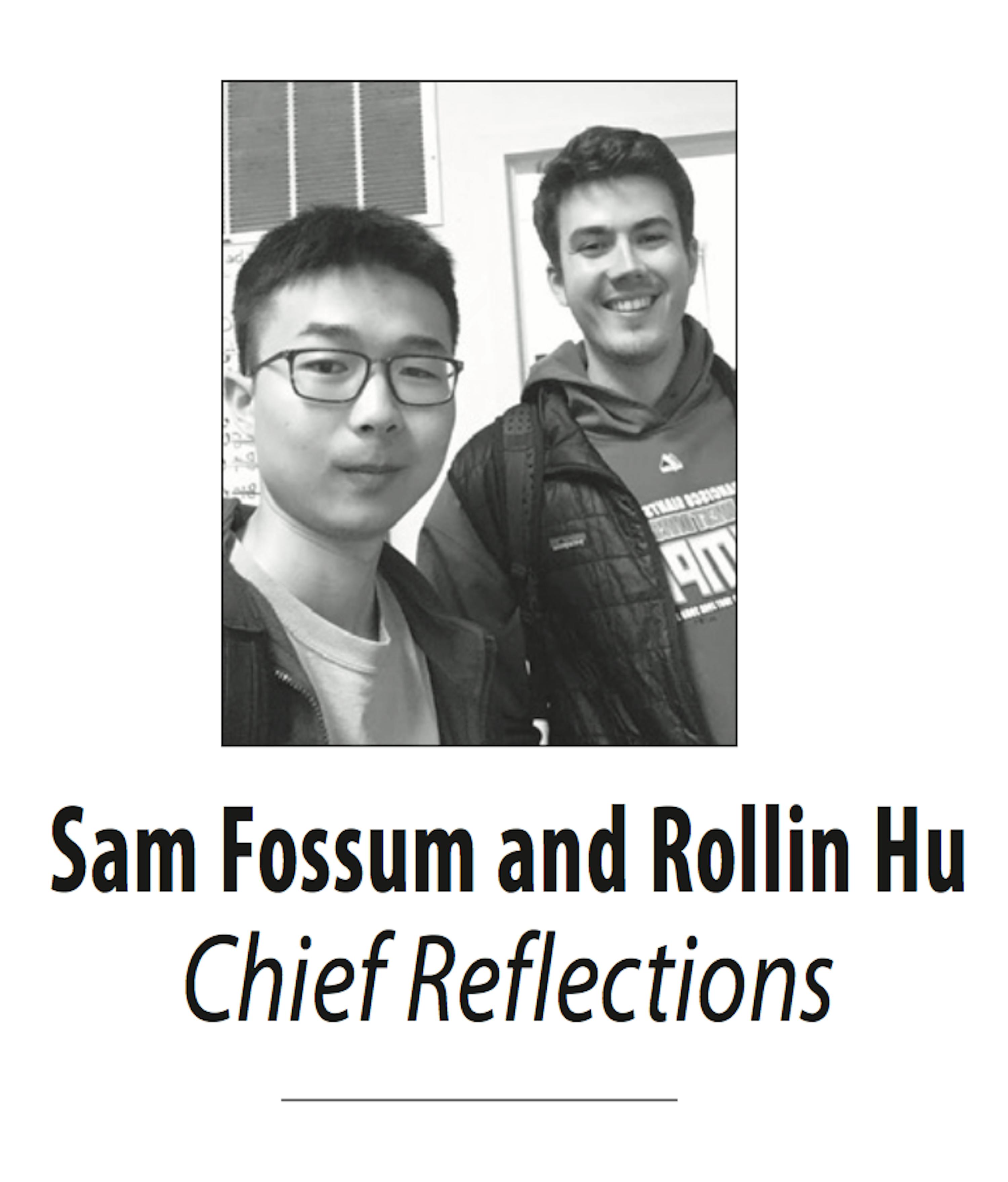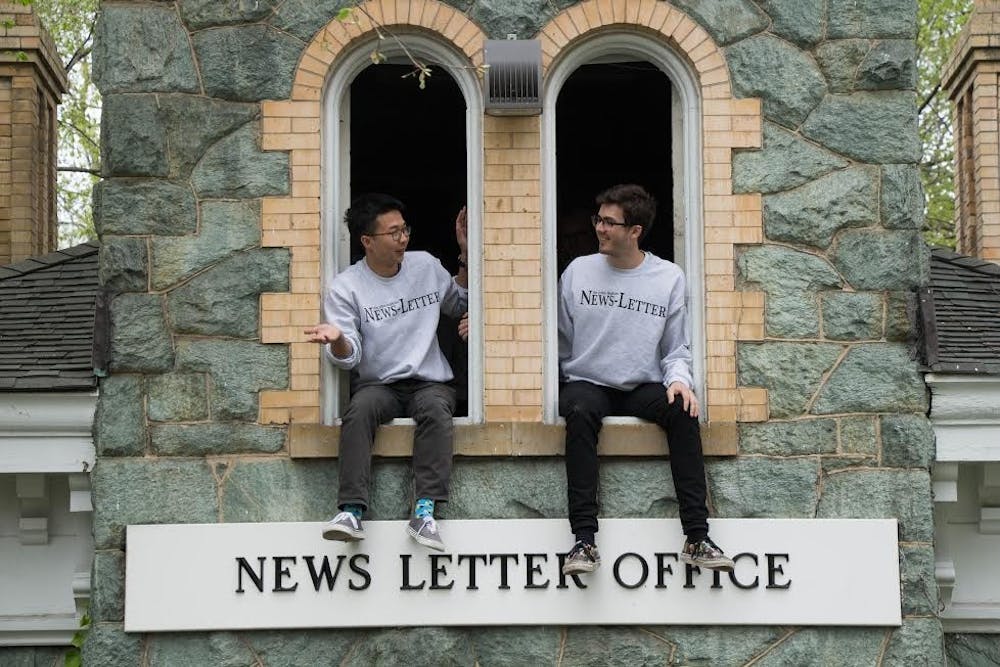
Hey, Rollin and Sam here, just your friendly neighborhood Editors-in-Chief. As our time wraps up, we decided that it’s apt to reflect on and construct some notion of closure around the job that has consumed our lives for the past year.
We’ve done a lot of serious work this year, from last week’s article on the Office for Institutional Equity to our coverage of the University’s proposed private police force bill.
Our wonderful Voices section has published earnest pieces highlighting the importance of mental health, and our Opinions section has served as a platform for students to share their views on pressing issues like gun control and campus activism.
We’ve also had a lot of fun with issues like our April Fool’s Edition, the coverage in our Arts and Sports sections and just the general revelry that happens on our production nights.
After a long Wednesday night, the newspaper that we print isn’t simply a bundle of newsprint. It is a collection of stories.
Sometimes they’re sad. Sometimes they’re infuriating. Sometimes they’re awe-inspiring and heartwarming.
But the most headache-inducing ones are those with competing narratives. Will a private police force be good, bad or a mixture of both? How should the school provide more mental health resources to its students? What about resources for survivors of sexual assault? Low-income students?
We often hear a story from students in one ear and another from administrators in the other. These differing stories are rarely clear-cut and often tango in and out of gray areas.
We have wrestled with these narratives, digging for an elusive truth. We may not have always gotten there, but we hoped to set the stage for our readers to.
Through the process of listening to and helping share these stories, we learned that the most important lesson of this job is to recognize the people telling them.
We have interacted with a lot of people this past year. Whether they are our staff, our interviewees or our readers, we want to reiterate that they are all people.
We realize that statement may sound dumb or ironically “deep,” but let us repeat: They are all people with individual thoughts, agendas, desires, fears and imperfections. And yet, we have seen people treat others not as people over the past year.
Sometimes we may perceive Hopkins administrators as caricatures or dastardly villains rather than individuals who, within the confines of their jobs, may be genuinely trying their best to help students.
We have seen students of differing political ideologies treat one another with dehumanizing disdain and mockery.
Readers have sent us emails or told us in person that we are “trash” and that our newspaper is “a rag.”
But this cycle of “otherization” and dehumanization must end.
We, like everyone else, have made mistakes, and there are those who are fully within their right to be upset and disappointed by some of our work.
But vitriol begets more vitriol, and if we want this school to improve (and we all know there is a hell of a lot of room for improvement), we are going to need every part of this institution to work together. Hopefully, this newspaper can help set us all on the path to reach that ideal.
Thank you to our readers for keeping us humble and holding us to a high standard.
Thank you to our editors and staff for consistently helping us to realize that standard through their hard work and positive attitudes.
And thank you to Kelsey and Morgan, our new Editors-in-Chief, for accepting this mantle in leading this newspaper through the next year.
We look forward to reading next year’s News-Letter, and we want you and the rest of the staff to know that we will always have your backs.





